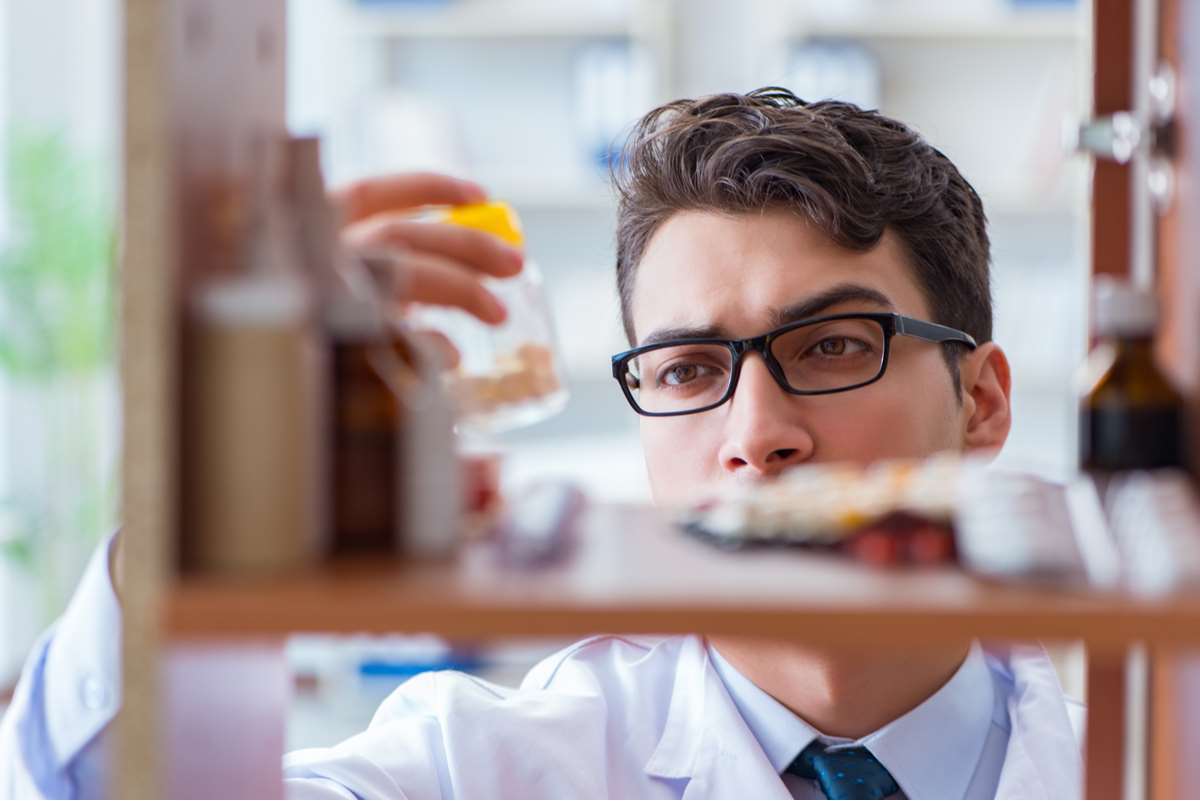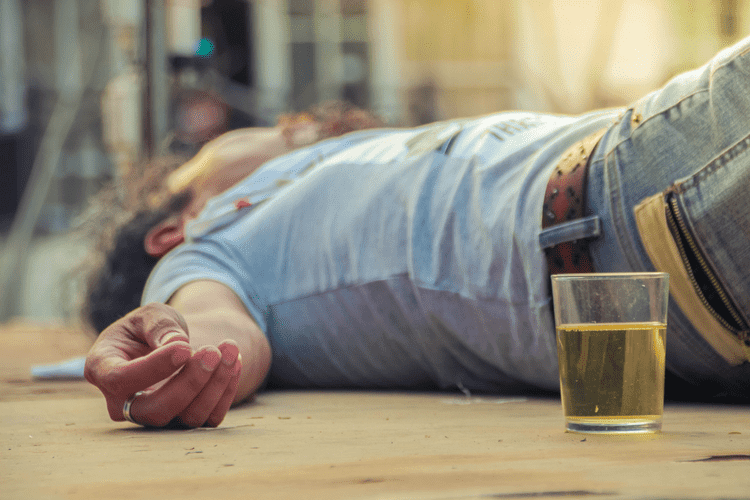Content
They either relapse or seek further therapy to prevent future slips. Friends and family see the noticeable benefits of quitting alcohol when Alcohol detoxification their loved one stops drinking and chooses to pursue a healthy life. They often say that the person seems like his or her old self.
Similar relapse rates for alcohol, nicotine, and heroin addiction suggest that the relapse mechanism for many addictive disorders may share common biochemical, behavioral, or cognitive components . Thus, integrating relapse data for different addictive disorders may provide new perspectives for relapse prevention. Social triggers include culture, family, religion, friends, loved ones, family, etc. Some addictive behaviors are directly influenced by all of these potential triggers. There are a few common examples in this regard, two of which include family and friends. If someone has a family history of alcohol abuse they will likely relapse. In the same vein, if someone is being peer pressured into abusing alcohol before treatment, chances are they’ll be peer pressured into relapsing after.
Take The First Step Into Recovery Today
Create a list of healthy coping skills and tools you can use when cravings or thoughts of relapse occur. This can include building a healthy support system of friends and family you can turn to. Clinical practice has changed considerably since the first studies that recruited in 1988.

When someone completes a recovery program, many people believe their journey is complete. However, successful management of their newfound recovery is a lifelong journey. Addiction affects the brain by introducing it to chemicals that it will continue to crave; this is why a surprising number of people relapse. People seeking recovery need to be reassured that they are not the first to relapse and they won’t be the last; many have done so and gone onto long-term recovery. Loved ones can help by encouraging contact with a physician, therapist, or sponsor, and to get to a 12-step or other support program meeting as soon as possible. If you notice any of these signs or symptoms, call 911 immediately, try to wake the person, check for breathing, administer Naloxone if possible and stay with the person until medical help arrives. If you are friend or family to someone with an opioid use disorder, it would be a good idea to keep Naloxone on hand for if and when an overdose occurs.
Exercise Therapy
There is evidence that approximately 90 percent of alcoholics are likely to experience at least one relapse over the 4-year period following treatment . Despite some promising leads, no controlled studies definitively have shown any single or combined intervention that prevents relapse in a fairly predictable manner. Thus, relapse as a central issue of alcoholism treatment warrants further study. Clinical research has shown that participating in 12-step groups or individual counseling increases levels of remission and decreases relapse rates.
Then, when stress levels increase or conflicts arise as they do even in normal lives, the altered brain remembers what takes away those feelings immediately and effectively. So these individuals pick up the drink or the drug – and everyone wonders how this could have happened. Cognitive behavioral therapy is a mode of therapy commonly used to treat addictions. CBT is very useful when it comes to identifying how a person responds to certain triggers — or people, places and things that fuel their desire to use drugs or alcohol. Learning how to respond differently to these triggers, or how to avoid them in the first place, is something that can be worked on during a return visit to rehab.
Find Your Treatment That Works For You!
Treatment obviously didn’t work last time or I wouldn’t have relapsed.” The skills learned in treatment are still valid, but a different approach might be needed. Though a person might be tempted to mentally beat themselves up, it’s especially crucial during relapse to demonstrate self-compassion. Your call is confidential, and there’s no pressure to commit to treatment until you’re ready. As a voluntary facility, we’re here to help you heal — on your terms.
Why COVID-19 can be ‘toxic’ for people in alcohol recovery – PBS NewsHour
Why COVID-19 can be ‘toxic’ for people in alcohol recovery.
Posted: Thu, 23 Apr 2020 07:00:00 GMT [source]
Anyone who has faced a substance use disorder is vulnerable to relapse. After getting sober for 23 years, Hoffman, unfortunately, relapsed in 2014 and lost his battle with the disease. He engaged in polysubstance abuse and was found dead in his apartment after overdosing on a combination of heroin, cocaine, amphetamine, and benzodiazepines. People use drinking as a means to cope and hide their feelings and relieve the symptoms of an existing mental disorder. Vice Versa, people who drink can develop a mental illness or have underlying signs that have been undiscovered.
Does Aa Work?
Asking for help is another step a person can take to prevent a relapse. Reaching out to a sponsor or other trusted individual and talking about urges or cravings can help dispel them. While everybody is different, there are a few triggers that seem to be most common among people who have relapsed. Two investigators (L.C. and A.S.) independently conducted a search of databases via MEDLINE and SCOPUS via PubMed and Scopus search engines to identify relevant studies published up to 31 March 2018. The search terms were constructed by domains of patients, intervention/exposure, and outcome. The investigators supplemented the manual reviews of article reference lists to identify studies that had not been included from the initial database search and also performed manual reviews of the relevant studies.

With the belief that people who suffer from alcoholism are powerless over their disease, then, it makes sense that they may need to attend treatment numerous times before they are truly able to conquer their addiction. However, while treatment is beneficial for your recovery and overall wellbeing, it is not uncommon to relapse after a period of sobriety. In fact, some schools of thought see alcohol relapse as a normal part of the recovery process. So it’s important to understand what a relapse is and how to respond once one has happened.
Why Is Drug Rehab Accreditation Important?
Relapse after a period of sobriety is an unfortunately common occurrence. Approximately half of all recovering addicts experience a temporary moment of weakness that results in picking up drugs or alcohol again.
The issues of recidivism and disease recurrence remain a concern in LT for alcoholic liver disease. An abstinence period of at least 6 months before LT is a mandatory selection criterion in most liver transplant centers, but the benefit of such pre-transplant 6 month abstinence remains unclear . alcoholic relapse signs Furthermore, there are subsequent reports indicating that an abstinence period of 6 months is not a significant predictive factor for recidivism . Careful evaluation of patients with alcoholic liver disease prior to liver transplantation can identify patients with a high risk of alcohol relapse.
Stages And Symptoms Of Alcohol Relapse
Alcohol relapses are related to changes in the brain that take place when a person becomes addicted to alcohol. These changes make it difficult to quit drinking and even harder to stay sober for an extended period of time.
- Though, this publication notes that the study didn’t compare the AA group to those attempting to recover without treatment.
- They feel that they are “bad” people who are unable to change who they inherently are.
- It’s worth mentioning that any of these programs can complement an AA program.
- In treatment, as well as in 12-Step Programs, people learn new, healthy behavior patterns and ways to cope with their previous, dysfunctional choices, so as to protect themselves from relapse.
After a relapse, many people experience feelings of shame or regret. Furthermore, you may feel like giving up the fight and giving into your addiction rather than continuing to work hard and overcome the fleeting desire to use. These are normal, but can create challenges to creating a drug-free life. It’s the brain’s way of letting the body know that exercise is a positive behavior. Hence, exercise can mimic the same effect of alcohol to some extent. It’s a good bridge between addiction and healthy coping mechanisms.
Without a firm commitment to long-term sobriety, you’re more likely to relapse. To be successful, you must be willing to put in the hard work required to stay sober. This includes attending 12-step meetings, having a committed sponsor and getting therapy or counseling for possible co-occurring mental health conditions, such as depression and anxiety.
Another lawyer, sober for more than 30 years, told me he makes a commitment to his sobriety every morning. He promises himself that he will put his recovery first, and preserving his sobriety is constantly in the forefront of his mind. Joe was a successful trial lawyer with an active practice in a small, well-respected firm. Colleagues, clients, and friends like him and saw him as accomplished in every aspect of his life.
This shows just how prevalent alcoholism is these days, and it’s not just limited to adults. When it comes to predicting relapse, there’s no set formula that will help a person avoid it at all costs. That’s not to say that there aren’t circumstances that an individual can avoid to prevent relapse.
All of this is said to communicate the fact that the longer someone stays sober, the more likely it is that they will avoid relapse . Regardless, the chances of relapsing after a prolonged period of abstinence are low, if not second to none.

